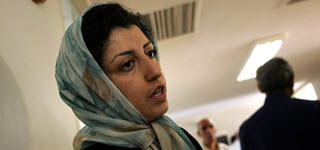
Human rights experts from the United Nations reported that several political prisoners in Iran are being denied medical treatment for serious illnesses and medical conditions. Some of these prisoners include prominent human rights defenders, lawyers and political activists and are faced with death if urgent medical care is not provided.
The UN experts said that their continued detention and recurring denials of medical treatment by the Iranian regime is endangering the lives of these prisoner. They said that this is unfortunately not an isolated incident in Iranian prisons – it has happened many times before. This could be avoided if the authorities exercised proper care.
In an article on the National Council of Resistance of Iran’s (NCRI) website, the names of those whose cases are being highlighted were mentioned: political prisoners Mohammad Hossein Rafiee Fanood and Kamal Foroughi, human rights defender Narges Mohammadi, lawyer Abdulfattah Soltani, blogger Hossein Ronaghi Maleki, religious figure Sayed Hossein Kazemeyni Boroujerdi and experimental laser physicist Omid Kokabee.
In January 2011, Mr. Kokabee was arrested upon returning from studies in the United States. He is currently serving a ten-year prison sentence for alleged “connections with a hostile government”. He has been diagnosed with kidney cancer and last week underwent surgery to remove his right kidney. This procedure could have been avoided if he had received proper and timely medical treatment at the time of diagnosis. He was, like many prisoners before him, “transferred to and from prisons chained to their beds”.
The United Nations experts said that it is “completely unacceptable” that the health of prisoners is being ignored and medical treatment denied. What makes these cases worse is the fact that these people have been detained and convicted “purely for their peaceful exercise of their fundamental freedoms and rights”.
The experts called on authorities to consider releasing Mr. Kokabee and the other political prisoners on medical or humanitarian grounds. They also called on the authorities to ensure the well-being of the prisoners by allowing them regular access to medical care. They reminded the regime that they are obliged, under international standards, to endure humane treatment of prisoners.
They highlighted that this is not the first time they have warned the Iranian authorities about substandard prisoner conditions and denial of access to medical care. The UN has previously called on the Iranian government to reform the prison system, but say that so far no real measures have been taken.







